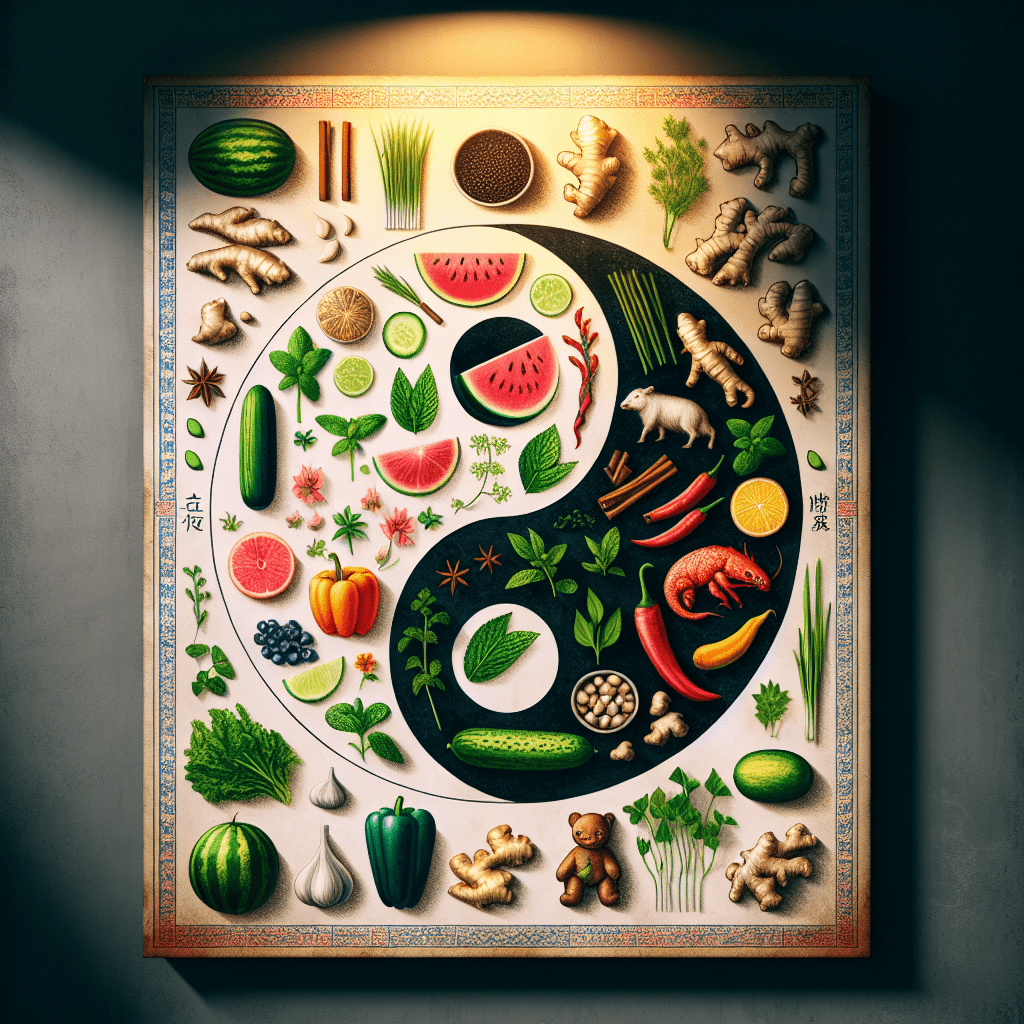Are you caught in an endless cycle of restrictive diets, calorie counting, and frustrating weight fluctuations? If you’re nodding your head, you’re not alone. Millions of people worldwide struggle with finding a sustainable approach to eating that truly nourishes their bodies while supporting their health goals. The good news is that there’s wisdom to be found beyond the latest Western diet trends – specifically in the time-tested traditions of the East.
In recent years, there’s been a significant shift in how many people approach their health. More and more individuals are turning away from quick-fix diet solutions and instead embracing holistic approaches inspired by Eastern philosophies. This growing interest isn’t just a passing trend; it represents a deeper desire to find balance in our relationship with food and our bodies.
A diet coach grounded in Eastern wellness traditions offers a refreshingly different perspective – one that might just be the key to breaking free from the dieting hamster wheel. Let’s explore what we can learn from these ancient approaches that have supported health and wellbeing for thousands of years.
Embracing a Truly Holistic View of Health
When you work with a diet coach trained in Eastern wellness philosophies, the first thing you’ll notice is that they don’t just focus on what’s on your plate. Unlike conventional Western approaches that often isolate nutrition from other aspects of health, Eastern traditions embrace a truly integrative view that considers the connections between mind, body, and spirit.
A diet coach from the East might start by assessing not just your eating habits, but your sleep patterns, stress levels, emotional wellbeing, and even your connection to nature. This holistic perspective recognizes that sustainable dietary changes can only happen when we address the entire ecosystem of our health.
“In Eastern medicine, we don’t separate nutritional health from mental or spiritual health – they’re all interconnected,” explains Dr. Ming Chen, a traditional Chinese medicine practitioner. “When someone struggles with their diet, we look at the whole person, not just their food choices.”
This approach is particularly appealing for those who have tried diet after diet without lasting success. By addressing the root causes of eating behaviors rather than just the symptoms, Eastern wellness coaches help create lasting, meaningful change rather than temporary fixes.
Food as Medicine: A Revolutionary Concept from the East
One of the most powerful principles a diet coach from the East might introduce you to is the concept of “food as medicine” – a fundamental teaching in both Traditional Chinese Medicine (TCM) and Ayurveda, two of the world’s oldest healing systems.
In these traditions, foods aren’t just bundles of calories, carbs, and proteins to be tracked on an app. Instead, each food possesses specific energetic properties that can help restore balance within the body. A skilled Eastern diet coach understands these properties and can guide you toward choices that specifically address your unique constitution and health concerns.
For example, in TCM, foods are classified according to their temperature (hot, warm, neutral, cool, or cold) and flavor (sweet, sour, bitter, pungent, or salty). These qualities determine how a food will affect your body’s energy, or “qi.” If you tend to run “hot” – perhaps experiencing inflammation, irritability, or redness – your diet coach might recommend more cooling foods like cucumbers, watermelon, and green tea to restore balance.
Similarly, in Ayurveda, foods are selected based on their effects on your dominant dosha (your primary energy type). A skilled Ayurvedic diet coach can help you understand whether you’re primarily Vata (air/space), Pitta (fire/water), or Kapha (earth/water), and guide your food choices accordingly.
This personalized approach is a far cry from one-size-fits-all diet plans that dominate Western nutrition. By understanding your unique energetic makeup, an Eastern diet coach helps you select foods that bring your body into harmony rather than forcing it to adapt to a generic plan.
Seasonal Eating and Local Foods: Nature’s Guidance System
“What foods should I eat?” This common question takes on new meaning when viewed through an Eastern lens. Rather than providing a static list of “good” and “bad” foods, a diet coach from the East might direct your attention to what’s growing around you.
Eastern dietary wisdom emphasizes the importance of eating according to the seasons and your local environment. This approach recognizes that nature provides exactly what our bodies need during different times of the year. In winter, nature offers hearty root vegetables and warming foods that support our immune systems. Come summer, cooling fruits and vegetables help us manage the heat.
“Seasonal eating isn’t just a nice idea – it’s how humans ate for thousands of years before global food transportation,” notes nutritionist Sarah Li, who integrates Eastern principles into her coaching practice. “Our bodies evolved to thrive on this natural rhythm.”
Beyond nutrition, this approach also supports sustainability – reducing the environmental impact of shipping foods across the globe and supporting local farmers. By aligning your diet with nature’s cycles, you tap into an intuitive way of eating that has supported human health for millennia.
Mindful Eating: The Practice of Presence
Perhaps one of the most valuable lessons an Eastern diet coach could teach you is the art of mindful eating. In a culture where we often eat on the go, in front of screens, or while multitasking, many of us have lost our natural connection to hunger, fullness, and the sensory experience of food. A mindfulness approach can transform this relationship.
Eastern traditions place enormous value on being fully present during meals. A diet coach might guide you through practices like:
- Taking a moment of gratitude before eating
- Chewing thoroughly and savoring each bite
- Noticing the colors, textures, and flavors of your food
- Eating without distractions like phones or television
- Stopping when you feel satisfied, not stuffed
Research has shown that these mindful eating practices can significantly improve digestion, reduce overeating, and enhance satisfaction with meals. A study published in the Journal of the Academy of Nutrition and Dietetics found that mindful eating techniques were effective for weight management and reducing binge eating behaviors.
“When you eat mindfully, you actually need less food to feel satisfied,” explains meditation teacher and wellness coach Amita Patel. “You’re giving your body the chance to register fullness signals and truly enjoy what you’re eating.”
Celebrating Variety: The Spice of Life
Walk into any traditional Asian or Indian marketplace, and you’ll be struck by the vibrant array of ingredients on display. This diversity isn’t just visually appealing – it’s a cornerstone of Eastern dietary philosophy.
A diet coach from the East would likely encourage you to incorporate a wide variety of foods into your meals, emphasizing different colors, textures, and flavor profiles. This approach naturally ensures a broad spectrum of nutrients while making meals more enjoyable and satisfying.
In many Eastern cultures, a properly balanced meal might include five or more different vegetables, various proteins, and complex carbohydrates – a stark contrast to the monotonous, repetitive meals many Westerners consume when dieting.
This celebration of variety extends to cooking methods and seasonings as well. By exploring different spices and preparation techniques, you can transform simple ingredients into exciting, flavorful dishes that satisfy both body and soul.
Balance and Moderation: The Golden Middle Path
If there’s one principle that defines Eastern approaches to diet, it’s the concept of balance. Rather than vilifying entire food groups or promoting extreme restrictions, Eastern dietary wisdom emphasizes moderation and harmony.
“The middle path is central to Eastern philosophy,” explains Dr. John Douillard, an Ayurvedic practitioner. “We don’t believe in complete abstinence or overindulgence – both extremes throw the body out of balance.”
A diet coach trained in Eastern traditions might help you see that occasional indulgences aren’t “cheating” – they’re part of a balanced approach to eating. The goal isn’t perfection but sustainable habits that can be maintained throughout life’s natural ebbs and flows.
This balanced perspective extends to how we view foods themselves. Rather than labeling foods as “good” or “bad,” Eastern traditions recognize that different foods serve different purposes. Some nourish the body, others comfort the soul, and both have their place in a harmonious diet.
Personalization: Honoring Your Unique Constitution
Perhaps the most refreshing aspect of working with an Eastern diet coach is the deeply personalized approach. Unlike standardized Western diets, Eastern nutrition is always tailored to the individual based on their unique constitution, current health status, and life circumstances.
In Ayurveda, for example, your diet recommendations would be based on your primary dosha and any imbalances you’re experiencing. In TCM, your practitioner would consider your body’s specific patterns of qi, yin, and yang to determine the optimal foods for your health. Understanding your unique Ayurvedic body type is essential to this process.
This personalization extends beyond physical considerations to include your lifestyle, preferences, and cultural background. A skilled Eastern diet coach recognizes that the most effective dietary approach is one that respects your individuality and can be realistically integrated into your daily life.
The Power of Plants: A Plant-Forward Approach
While Eastern diets aren’t exclusively vegetarian, they do place plants at the center of the plate. Traditional Asian and Indian cuisines feature abundant vegetables, fruits, legumes, and whole grains, with animal products often used more as flavoring than as the main component of meals.
This plant-forward approach aligns perfectly with modern nutritional research, which increasingly confirms the health benefits of diets rich in plant foods. Studies have linked plant-based eating patterns to reduced risk of heart disease, certain cancers, and diabetes, as well as improved longevity.
A diet coach from the East might help you discover the incredible diversity of plant foods and teach you how to prepare them in ways that are both nutritious and delicious. By gradually shifting toward a more plant-centric diet, you can enjoy these health benefits while still honoring your personal preferences and cultural traditions.
Bringing Eastern Wisdom Into Your Daily Life
The beauty of Eastern dietary wisdom is that it offers a comprehensive approach to health that nurtures not just the body, but also the mind and spirit. These time-tested principles provide a framework for developing a peaceful, balanced relationship with food that can last a lifetime.
While you might not have access to an Eastern diet coach in your area, you can begin incorporating these principles into your daily life:
- Start paying attention to how different foods make you feel
- Experiment with eating seasonally and locally
- Practice mindful eating at least once a day
- Incorporate a wider variety of plant foods into your meals
- Consider the energetic qualities of your food choices
- Embrace moderation rather than restriction
- Honor your unique needs and preferences
As we navigate the complex world of modern nutrition, perhaps the most valuable lesson from Eastern dietary traditions is this: true health comes not from following rigid rules or chasing perfection, but from cultivating awareness, balance, and harmony in our relationship with food and our bodies.
By embracing these principles, you might just find that the sustainable, nourishing approach to eating you’ve been searching for has existed for thousands of years – waiting to be rediscovered.



